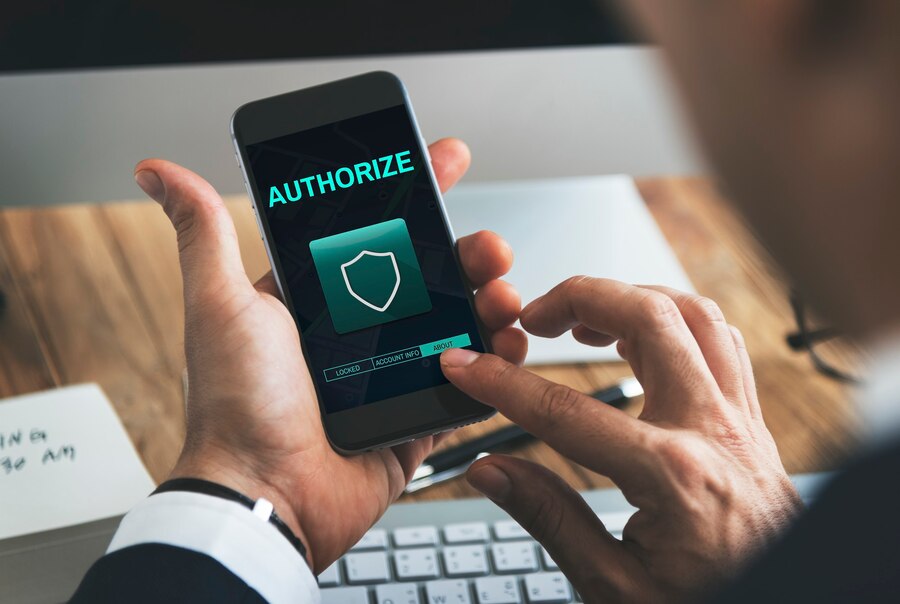
How to Avoid Common Cryptocurrency Scams
Cryptocurrency can be exciting, but it’s also full of risks—especially scams. From fake giveaways to phishing links, scammers use many tricks to steal your money. Learning how to spot and avoid these traps is key to protecting yourself.
This guide will show you how to avoid the most common crypto scams, stay secure on the blockchain, and make smarter decisions with your investments.
Pro Tip: If something sounds too good to be true in crypto, it probably is. Always double-check before you click, send, or invest.
Quick Guide: Spotting and Avoiding Crypto Scams
- Fake Websites and Apps: Always double-check the URL. Use official sources or bookmark trusted platforms.
- Phishing Scams: Never click on random links in emails or messages. Use two-factor authentication.
- Pump-and-Dump Schemes: Avoid investing in unknown coins hyped on social media. These are often fake projects.
- Fake Giveaways: No legit company will ask you to send crypto to “get more back.” Ignore these offers.
- Impersonation Scams: Scammers may pose as influencers, crypto support staff, or even friends. Confirm through official channels.
Important: Once crypto is gone, it’s nearly impossible to get back. Stay alert, protect your info, and avoid offers that seem too good to be true.
Why Understanding Crypto Scams Matters
1. Crypto Transactions Are Irreversible
Once you send crypto, you can’t get it back. That’s why avoiding fraud in the first place is so important.
2. Scammers Are Getting Smarter

Fake websites, deepfake videos, and cloned apps make it hard to tell what’s real.
3. Protects Your Digital Wallet
Keeping your wallet and private keys safe is your responsibility. Learning the risks helps you stay in control.
Common Types of Cryptocurrency Scams
1. Fake Investment Platforms
These sites promise guaranteed returns or double-your-money offers. Red flags:
- No company details or licenses
- Unrealistic profits
- Pressure to invest quickly
2. Phishing Attacks

Scammers send emails or messages with fake links that look real. Once you enter your wallet info, your funds are gone. Stay safe:
- Never share your seed phrase or private keys
- Double-check links and email addresses
3. Social Media Scams
You’ll see fake celebrity accounts or influencers promoting crypto giveaways. They often ask you to send a small amount to “unlock” a bigger prize. Avoid them:
- Real giveaways never ask for payment
- Always check for verified accounts
4. Fake Crypto Wallets and Apps
Malicious apps that steal your crypto the moment you deposit it. How to avoid:
- Download only from official app stores
- Check reviews and developer names carefully
5. Rug Pulls and Pump-and-Dumps
Developers hype a coin, take your money, and then disappear. These are common in DeFi (Decentralised Finance) and new tokens. What to look for:
- Anonymous developers
- No real use case or roadmap
- Sudden social media hype
Steps to Protect Yourself from Crypto Fraud
1. Use Reputable Platforms
Stick to well-known exchanges like Coinbase, Binance, or Kraken. Avoid random platforms promoted in forums or chats.
2. Secure Your Wallet
- Use hardware wallets for better protection
- Enable two-factor authentication
- Never store your private keys online
3. Do Your Own Research (DYOR)
Before investing, research the project:
- Who is behind it?
- Is there a clear roadmap or real use case?
- Are they listed on trusted platforms?
4. Verify Everything
- Confirm URLs before entering login info
- Use official links from company websites
- Don’t trust DMs or random Telegram groups
5. Trust Your Instinct
If something feels off or rushed, step back. Scammers rely on urgency and excitement to catch you off guard.
Tailoring Your Security Based on Your Crypto Experience
For Beginners
- Start small
- Use beginner-friendly apps with strong security
- Avoid unknown coins or DeFi platforms
For Regular Traders
- Consider cold wallets
- Set withdrawal limits on exchanges
- Be cautious with new tokens or NFT launches
For High-Value Holders
- Split funds between multiple wallets
- Use multi sig wallets for added protection
- Stay anonymous where possible
Advanced Tips to Strengthen Blockchain Security
1. Use a VPN

It adds a layer of security when accessing wallets or exchanges, especially on public Wi-Fi.
2. Bookmark Trusted Sites
This reduces the risk of clicking fake links in search results.
3. Watch for Scammer Red Flags
- Poor spelling and grammar
- Too-good-to-be-true returns
- Requests for personal details or seed phrases
Common Mistakes to Avoid
1. Sharing Wallet Info
Never share your private key, seed phrase, or QR code publicly.
2. Ignoring Two-Factor Authentication
Always use it—SMS, email, or an authenticator app.
3. Blindly Following Social Media Advice
Crypto influencers are often paid to promote coins. Verify before you buy.
Smart Habits That Keep Your Crypto Safe
1. Stay Updated
Follow trusted crypto news sources to know about new scams or threats.
2. Back Up Your Wallet
Keep your seed phrase written down and stored safely offline.
3. Be Skeptical
If something asks for money urgently or offers unrealistic returns, it’s probably a scam.
Frequently Asked Questions (FAQs)
1. How can I check if a crypto platform is legit?
Look for reviews, licensing, and whether it’s listed on trusted exchanges.
2. What should I do if I fall for a scam?
Report it to the platform and local cybercrime authority. Sadly, most crypto transactions can’t be reversed.
3. Can I trust crypto giveaways?
Most are fake. Legit ones won’t ask you to send crypto first.
4. Are cold wallets safer than hot wallets?
Yes. Cold wallets aren’t connected to the internet and are less likely to be hacked.
5. Why do scammers use Telegram and WhatsApp?
These apps are harder to monitor and allow scammers to target users privately.
Conclusion: Stay Smart, Stay Safe in Crypto
Crypto scams are getting more creative every day. But with the right knowledge, you can avoid the traps and protect your investments. Stick to secure platforms, never share private keys, and don’t fall for hype.
If you’re unsure, wait and double-check. Crypto rewards patience and caution far more than speed. Are your security habits strong enough to protect your wallet?


